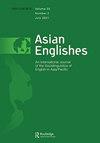From a Foreign Language to own Language: Resolving Conflicts Over English Education in Japan
IF 1.8
Q1 LINGUISTICS
引用次数: 1
Abstract
ABSTRACT There have been controversies over Japan’s English education policy. The proponents argue that strengthening English is necessary for remaining economically competitive and catching up with neighboring countries. This article surveys non-academic Japanese-language books to understand various views on the English policy in Japan. The opposition to the policy came from both the right and the left sides of the Japanese political spectrum. While the former views English as a threat to the uniqueness of Japanese culture, the latter accuses the policy of being neoliberal. The author also observed that most of the arguments manifested a monolingual view of language, which reduces the relationship between languages to be a zero-sum game. The article ends by suggesting that, through adopting a multilingual view of language which regards English as a repertoire of Japanese linguistic behavior, many of the conflicts surrounding the English education policy in Japan can be resolved.从外语到母语:解决日本英语教育的矛盾
日本的英语教育政策一直存在争议。支持者认为,加强英语是保持经济竞争力和追赶邻国的必要条件。本文通过对非学术性日语书籍的调查,来了解关于日本英语政策的各种观点。反对该政策的声音来自日本政界的左右两派。前者认为英语是对日本文化独特性的威胁,后者则指责该政策是新自由主义。作者还观察到,大多数争论都体现了语言的单语观,这将语言之间的关系降低为零和游戏。文章最后建议,通过采用多语言的语言观,将英语视为日本语言行为的一种保留,可以解决围绕日本英语教育政策的许多冲突。
本文章由计算机程序翻译,如有差异,请以英文原文为准。
求助全文
约1分钟内获得全文
求助全文
来源期刊

Asian Englishes
LINGUISTICS-
CiteScore
3.30
自引率
18.80%
发文量
34
期刊介绍:
Asian Englishes seeks to publish the best papers dealing with various issues involved in the diffusion of English and its diversification in Asia and the Pacific. It aims to promote better understanding of the nature of English and the role which it plays in the linguistic repertoire of those who live and work in Asia, both intra- and internationally, and in spoken and written form. The journal particularly highlights such themes as: 1.Varieties of English in Asia – Including their divergence & convergence (phonetics, phonology, prosody, vocabulary, syntax, semantics, pragmatics, discourse, rhetoric) 2.ELT and English proficiency testing vis-a-vis English variation and international use of English 3.English as a language of international and intercultural communication in Asia 4.English-language journalism, literature, and other media 5.Social roles and functions of English in Asian countries 6.Multicultural English and mutual intelligibility 7.Language policy and language planning 8.Impact of English on other Asian languages 9.English-knowing bi- and multilingualism 10.English-medium education 11.Relevance of new paradigms, such as English as a Lingua Franca, to Asian contexts. 12.The depth of penetration, use in various domains, and future direction of English in (the development of) Asian Societies.
 求助内容:
求助内容: 应助结果提醒方式:
应助结果提醒方式:


